Doctors from the EMT team helped in Tanzania
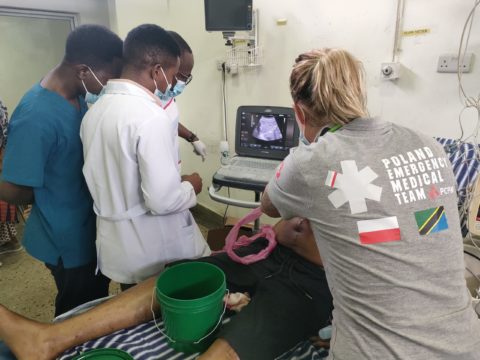
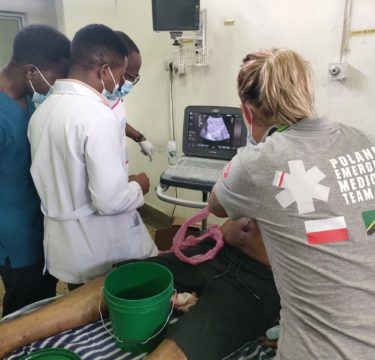
Working daily in an emergency department is challenging even in the best-equipped hospital. However, in Tanzania, where patients must pay for every procedure, test, or even a simple syringe, and basic equipment is often lacking, it becomes an actual fight for life, and every minute counts.
Three Polish female doctors—Weronika Malinkiewicz, Anna Gaińska, and Maria Ulążka—faced this reality. For several weeks, they worked in the emergency departments of government hospitals in Dar es Salaam, specifically at Temeke and Mwananyamala. Every day, they witnessed very severely injured patients, as the metropolitan area has over 7 million inhabitants. The doctors helped as part of a continuing project initiated by PCPM with support from the Polish Ministry of Foreign Affairs’ Poland Aid program. Since 2024, the Foundation has run it independently without external support.
The Medical Emergency Team of PCPM (Emergency Medical Team – EMT), which has been assisting worldwide during crises—from Ukraine to Nepal, Madagascar, and Tanzania—is crucial in this context. It is the only team in Poland certified by the WHO, capable of deploying within 48 hours to any place on Earth to support countries affected by earthquakes, floods, or other natural disasters. Team members also engage in training emergency and medical services in countries like Ethiopia, Uganda, Tanzania, and Palestine.
Every day from morning to afternoon, the doctors worked alongside Tanzanian teams.
“The nature of work in such a department is completely different from that in Poland. It’s not about doctors’ skills, because they are like anywhere else in the world. However, very often, I could not perform a test or use even the most basic device until it was purchased,” says Maria Ulążka.
In Tanzanian hospitals, if someone does not have insurance—which is unfortunately common—they pay for everything. This often leads to complications that impact patients’ lives.
“You pay even for an IV cannula or gauze. Until the family presents proof of purchase, we cannot start any treatment procedure. Because of this, treatment is often prolonged, and time is critical,” the doctor adds.
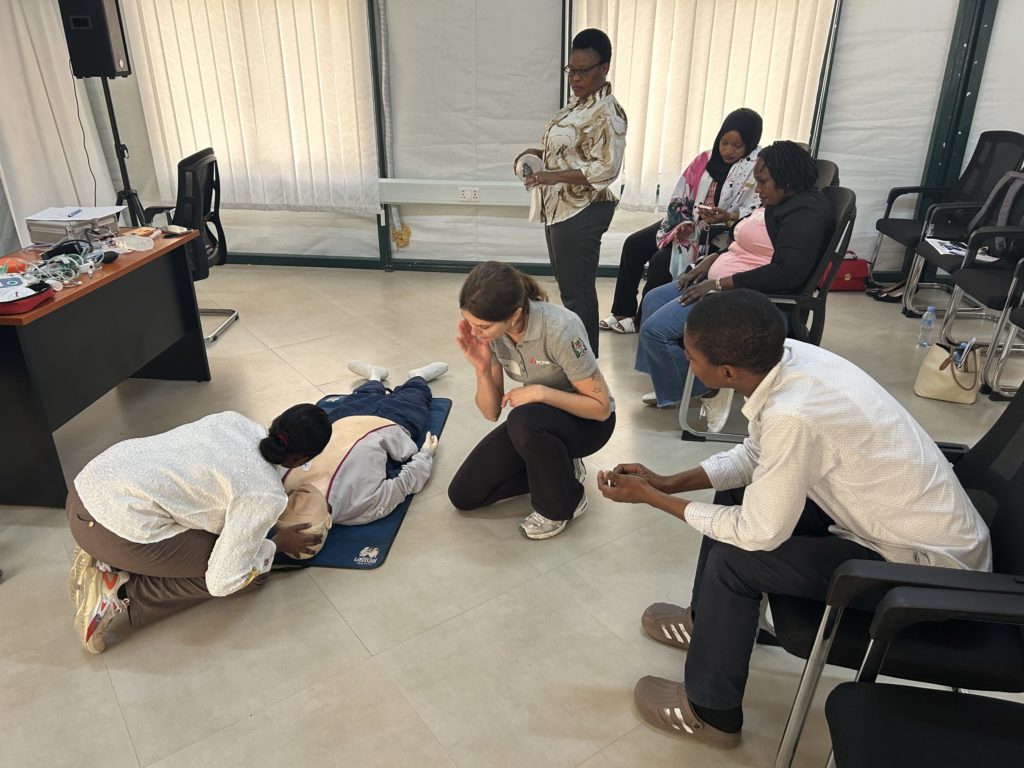
Such verification often takes hours. If a patient arrives alone, the family must be contacted first.
“I remember a case when a family arrived by tuk-tuk, all bloodied from a car accident. The father had a cut lip, the mother a broken leg, and their son had head injuries. Despite being injured, the mother kept shouting in English and Swahili that she was a university professor, wanting to show she could pay for treatment,” Maria recalls. “In Poland, there are no such dilemmas, and no patient thinks this way, but here it is common.”
“In Poland, I rarely see such severe cases.”
Because of costs, people often come to the hospital only as a last resort. Unfortunately, this means minor injuries or illnesses, easily treated at an early stage, usually become life-threatening.
“In Poland, I hardly encounter such cases. The exception was during COVID-19 when people were afraid to come to hospitals, and ailments progressed,” says Anna Gaińska.
Unfortunately, this is everyday life in Tanzania. Families bring their relatives or patients who come on their own only when conditions are severe. If they consider something minor, they usually do not come, generally because they lack money.
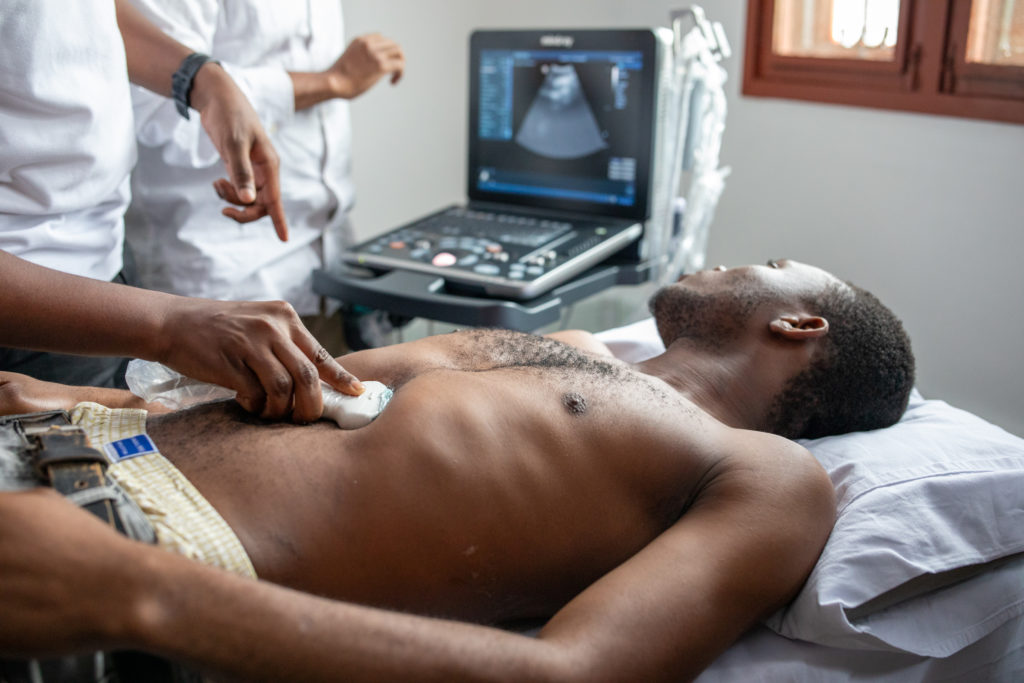
Poles train in Tanzania
Besides bedside care, the doctors conducted training on the use of ultrasound, which is essential in proper patient diagnostics and emergency care, blood gas analysis, and securing and clearing airways. They also implement organizational improvements to aid patient care. These include patient cards, identification wristbands, and a basic triage system in which patients are color-coded based on condition to facilitate the order of medical assistance.
“These are not easy conditions. Equipment is often lacking, procedures are paid for, and patients often wait in life-threatening states. That’s why even small changes mean a lot. We try to ensure what we do stays here longer, not just one-off trainings but permanent solutions that improve teamwork and organization,” emphasizes Aleksandra Mizerska, coordinator of PCPM’s African missions.
Therefore, in 2024, PCPM opened the Tanzanian-Polish Emergency Medicine Training Center in Dar es Salaam, the most modern facility of its kind in the country.
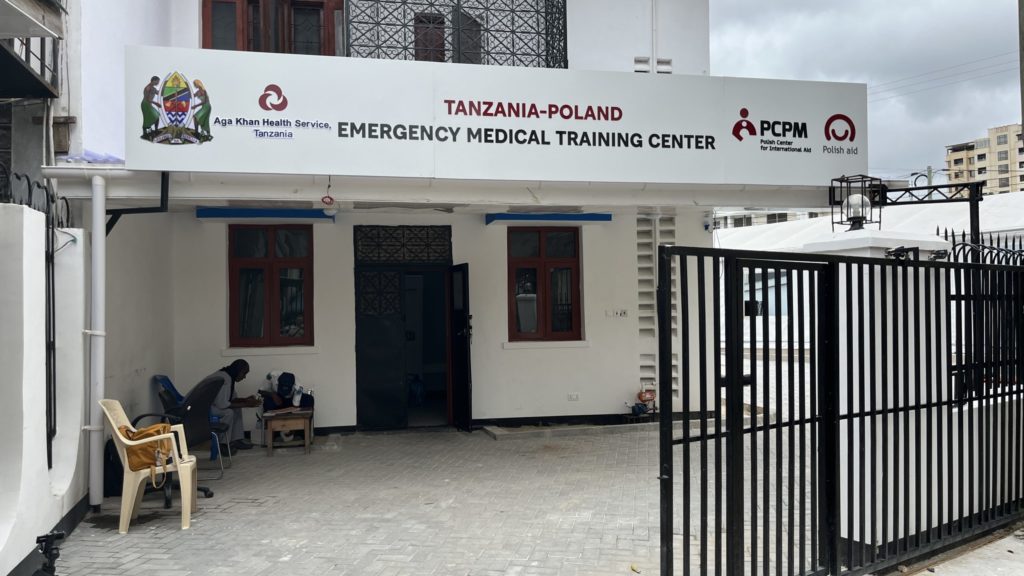
“When we were there, a training phantom purchased by PCPM arrived. It’s great equipment—one can simulate heart rhythms with murmurs, breaths, and use real defibrillators on it,” says Maria.
“The training center is vital,” highlights Mizerska. “Tanzanians often have a lot of theoretical knowledge but few opportunities for training because such equipment is expensive. Thanks to the center, which we built, they have this opportunity,” adds the PCPM project coordinator.
The effects are already visible. PCPM equipped not only the Training Center but also donated professional medical equipment to hospitals. One ultrasound device delivered as part of the project is used regularly and effectively. The staff trained the previous year now independently perform and correctly interpret examinations.
This shows that good medicine is not only about access to the newest technology but primarily knowledge, commitment, and readiness to work in any conditions. For Polish doctors and their Tanzanian colleagues, the most important are results that last long after their departure.
As Aleksandra Mizerska highlights, PCPM has focused on emergency medicine in Tanzania since 2022. PCPM successfully trained 2,400 doctors and nurses in emergency medicine to the rigorous standards of the American Heart Association. This comprehensive program prepared dozens of Tanzanian instructors. Additionally, 150 emergency service personnel, including firefighters, scouts, and drivers, have undergone first aid training and were equipped with modern medical kits to enhance their immediate response capabilities.